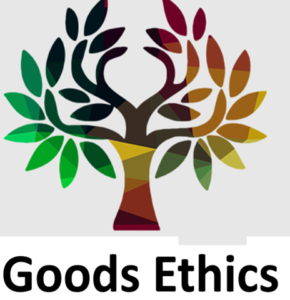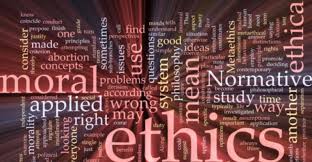Ethics – Section 1
Building itself depends on the improvement of current life, regardless of whether as far as innovation or effectiveness or accessibility with less budgetary endeavors. The way toward building releases you through a progression of various trials with regards to reasonable use. In spite of the fact that it isn’t care for a trial in research center under controlled conditions, which is done while learning, a designer ought to be prepared to do likewise on a social scale including human subjects. This article explores the impact that ethics has on the profession of engineering. Check out our article on ethical issues facing engineers.
Experimentation is the fundamental part of planning process. An architect who is should plan the pieces of a vehicle, will have the option to comprehend the outcome just when it is tried for all intents and purposes. Primer reproductions are directed now and again to know how the new idea of building acts in its first harsh plan. Materials and procedures are given it a shot, more often than not utilizing formal test strategies. Such tests fill in as a premise, which help in building up the last item.
Architects as Experimenters
During the time spent building up an item, a specialist for the most part learns through experimentation. To basically, an experimentation technique is the for the most part utilized one to acquire results, yet that goes with certain counts. Thus, we can say that, fundamentally any test is done with incomplete obliviousness. Indeed, even the results of the analyses may not be true to form. An architect ought to consistently be prepared for the sudden yield. The improvement of current model will prompt some change which might be productive.
The tests made are generally exposed to dangers however the undertaking is little. Numerous vulnerabilities are probably going to happen contingent on the progressions that may happen in the modified model or materials bought. On occasion, when the materials were exposed to proceeded with anxiety, or some procedure, it may happen that the idea of the substance changes which may prompt some devastation. These are the regions of trial where nothing is extremely unsurprising.
Obligation in Experimentation
In spite of the fact that the analyses and the outcomes are unsure, there are not many things which an architect is should remember. Consider the accompanying focuses which are identified with the ethical parts of human conduct −
- To keep up the wellbeing of individuals.
- To obtain their privileges of assent.
- To keep them mindful with respect to the test idea of the undertaking.
- To caution them about the plausible wellbeing dangers.
- Should screen the consequences of the trial consistently.
- Having self-sufficiency in directing analyses.
- Tolerating responsibility for the consequences of the undertaking.
- Showing their specialized capability and different attributes of demonstrable skill.
Principles
The morals that an architect ought to adhere to relies on the ethical benchmarks of the person. Good faith suggests cognizance which means the feeling of mindfulness. Each architect is required to have some ethical gauges regardless of the job he is performing.
The present workplace of specialists, slender down their ethical vision completely with the commitments went with the status of the representative. Be that as it may, this may overstep the ethical laws. Alongside fulfilling the business’ objectives, by carrying on as a capable representative, by not doing any extortion, not breaking privacy and damaging patent rights and so on., a specialist ought to be cognizant about the unforeseen. Unfavorable result may come up as unforeseen aftereffect of their investigations; for this, they are responsible to the general population.
Educated Consent
As a capable architect, one ought to be educated regarding the realities in order to be cognizant. The built results of the organization ought to be so that they can never be utilized to play out any unlawful or unsocial exercises, which causes obliteration.
It is to be seen that if an organization creates a few items that are out of design or the things which advance wastage of vitality and don’t get in advantages, such things are to be all around disclosed to the business and elective arrangements ought to likewise be recommended by the specialists.
Moral Autonomy
Any individual can be ethically self-sufficient just when one is being certifiable in one’s responsibility towards virtues. Moral convictions and demeanors must be incorporated into a person’s character which prompts a submitted activity.
The obligation to answer a surprising outcome, impacts an architect to include himself by and by into the work. This prompts moral self-rule wherein, he likewise gains the trust of the business, through his responsibility. Such dependable activities lead to extraordinary results.
Responsibility
Responsibility can be comprehended as the ethical duty that we have towards our activities. It implies a propensity to be eager to straightforwardly acknowledge the ethical assessments towards one’s activities and being receptive to the evaluation of others. The hole between easygoing obligation and good responsibility is normal in any calling, alongside designing.
Give us now a chance to consider the accompanying occasions to comprehend responsibility −
At the point when a gathering of people are associated with the fulfillment of a venture, at that point the responsibility alludes to the gathering limiting the odds of acknowledgment of good obligation towards a particular activity, where every individual makes just a little commitment to something a lot bigger.
The responsibility is diffused inside the association and one needs to acknowledge it. Both credit and disappointment should be considered for responsibility where the work is diffused and the territories of individual responsibility are delimited inside the association.
Now and again, when the specialists are pressurized to move to another venture while the current is as yet in progress, at that point the responsibility is restricted distinctly for gathering plans.
There is constantly an ethical contribution past the set down institutional job, where the specialists can’t separate themselves from individual obligations of their work.
Codes of Ethics
The specialists who are spoken to as experts, and who have a place with an expert society need to have some ethical duties. A set of principles is significant for specialists to stay focused on their reality.
Codes of Ethics
The building social orders, for example, AAES, ABET, NSPE, IEEE and AICTE have surrounded these codes of morals which are useful to designers to reinforce the ethical issues on their work. The codes of morals play at any rate eight significant jobs, for example, the accompanying −
Serving and ensuring the open − Engineers are in a capable position where trust and dependability, both are fundamental. A code of morals works as a dedication by the calling all in all that architects will serve the general wellbeing, security and welfare.
Direction − Codes are written in a word yet demonstrate successful in offering general direction to the specialists. Increasingly explicit bearings might be given in valuable articulations or rules, which advise how to apply the code. If necessary, the help is gotten for further determination.
Motivation − Codes of morals, which determine an aggregate duty towards a calling, help in persuading the architects towards moral lead. As a matter of fact, these codes make one feel extremely capable and glad to be an expert consequently persuading towards the responsibility one ought to have towards one’s calling.
Common Standards − The models set up ought to be material to all people, in their specific callings. With the codes of morals, the open is guaranteed of designers with least standard of greatness and the experts are given a reasonable method to contend.
Backing for Responsible Professionals − The experts who act morally have progressively positive help through these codes. An expert architect who has the expectation to remain by the codes of morals, can have no mischief from shameless expert commitments, as he can dismiss easily yet officially. Also, these codes can give legitimate help to architects condemned for satisfying business related proficient commitments.
Training and Mutual comprehension − The codes which are generally flowed and formally endorsed by expert social orders, advance a common comprehension among experts, people in general and government associations about the ethical obligations of architects. These codes brief discourse and reflection on good issues.
Prevention and Discipline − The experts who neglect to pursue the codes show dishonest direct, which is apparent from the noncompliance towards their calling. Such an examination for the most part requires paralegal procedures intended to get at reality with regards to a given charge without disregarding the individual privileges of those being explored. This may prompt ejection of those whose expert direct has been demonstrated untrustworthy, which additionally prompts loss of regard from associates and the neighborhood network.
Adding to the Profession’s Image − Codes venture the designers as the experts of morally dedicated calling, which motivates them to work with incredible responsibility and all the more adequately to serve general society. It can likewise win more prominent forces of self-guideline for the calling itself, while diminishing the interest for greater government guideline.
Points of interest of Codes of Ethics
Give us now a chance to see the accompanying points of interest of codes of morals. The codes
- Set out the standards and duties of the calling.
- Apply a true administrative impact ensuring the two customers and experts.
- Improve the profile of the calling.
- Rouse and move professionals, by endeavoring to characterize their raison d’etre.
- Give direction on adequate lead.
- Bring issues to light and cognizance of issues.
- Improve quality and consistency.

